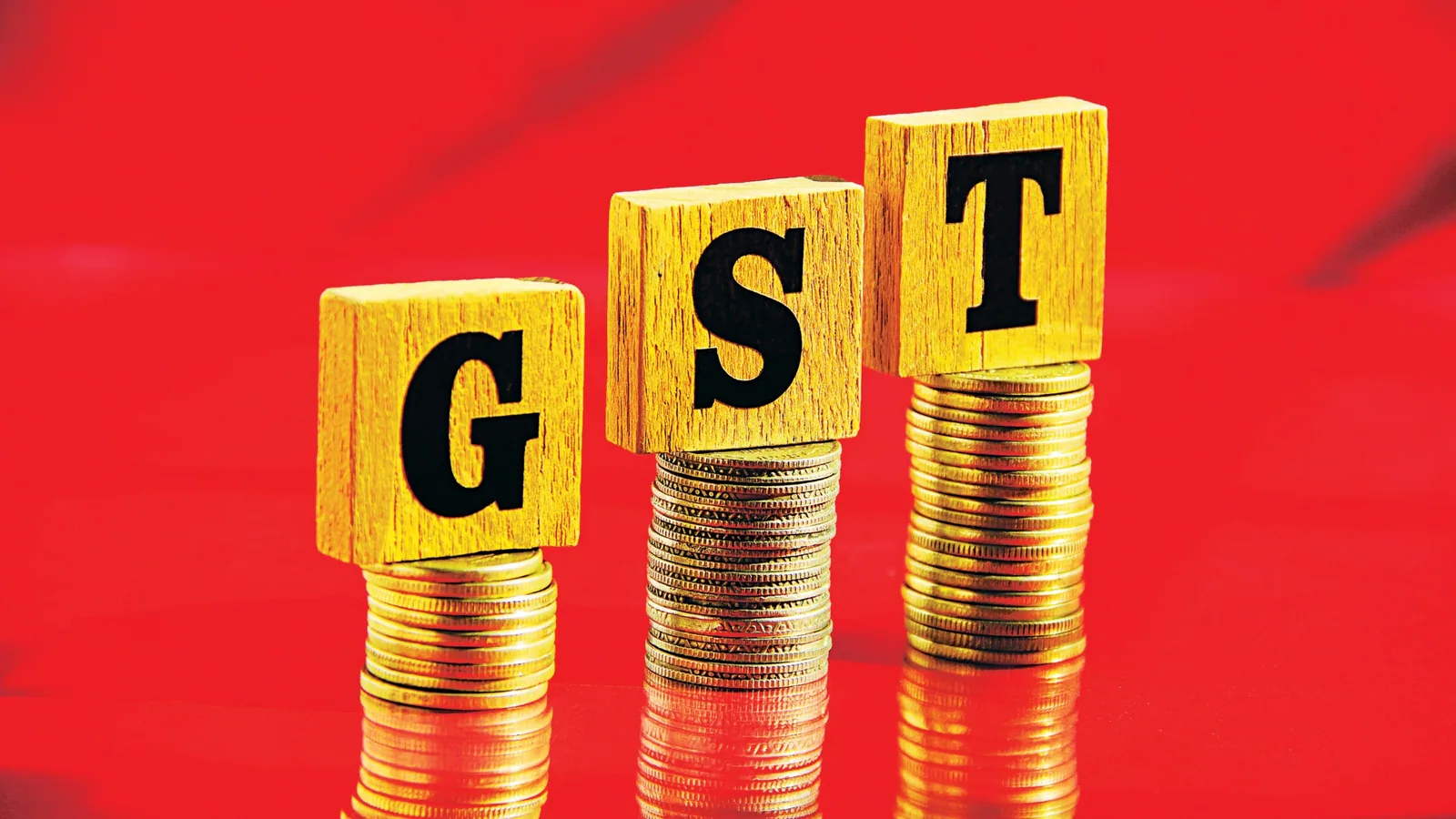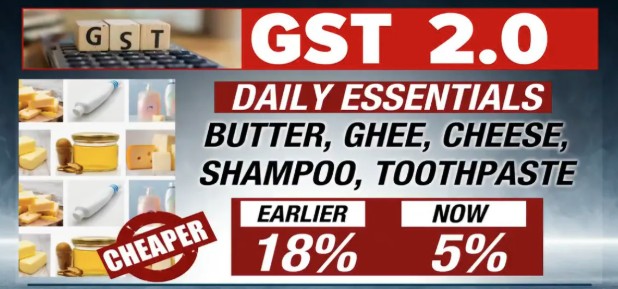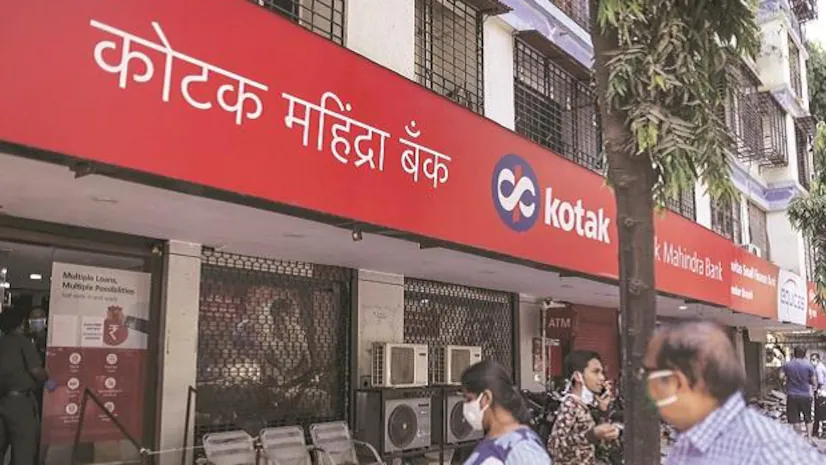Top Trending Finance & Stock Market News & Highlights


GST reform: starting Monday, these goods will be subject to the highest tax. View the complete list
September 22 GST changes: Under the new tax structure, which goes into effect on Monday, items falling within these categories will be subject to the newly revised highest tax rate of 40% GST. View the items' list here.After its 56th meeting on September 3, 2025, the GST Council, which is led by the Indian federal government, voted to streamline the indirect tax system in India by redesigning the current goods and service tax (GST) slab structure into a "two-tier" system.Indian customers will benefit from a revamped "two-tier" tax structure that goes into effect on Monday, September 22, 2025. Depending on the type of commodity sold in the country, it will be subject to either the 5% or 18% tax band. In India, GST is now imposed in four slabs: 5%, 12%, 18%, and 28%. However, the government has since modified these slabs. Many products sold in the Indian economy will see price reductions as a result of the federal government's action; nevertheless, starting Monday, a wide range of products will also be subject to higher consumer taxes. 1. Sin Goods: Generally speaking, sin goods are things that are detrimental to society and health, such as cigarettes and pan masala. Cigarettes, pan masala, beedi, and other tobacco goods including chewing tobacco and gutka, as well as online gaming and gambling, would all be subject to a 40% GST tax starting on Monday, September 22, 2025. 2. Luxury cars: Four-wheelers with an internal combustion engine (ICE) capacity greater than 1,200cc and a length greater than four meters were also placed in a 40% tax level by the GST Council. In the past, the ex-showroom pricing of SUVs and MPVs, which are included in this group, was increased by 28% GST and 22% Cess. 3. Over 350cc two-wheelers: The GST Council raised the tax rate for two-wheelers with engines larger than 350cc from 28% GST and 3% Cess to 40%. Despite the removal of the Cess levy, two-wheelers with engines larger than 350cc will now be subject to a higher tax rate. 4. Soft drinks: The central government raised the GST rate from 28% to 40%, which will result in a price increase for soft drinks and other non-alcoholic beverages like Coca-Cola, Pepsi, Mountain Dew, Fanta, and flavor-infused waters. 5. Items that cost more when you're in the 18% tax bracket: Items that will be subject to GST at the higher 18% slab starting on Monday, September 22, 2025, include dining at restaurants, particularly those with air conditioning and premium outlets; consumer durables like refrigerators, washing machines, and air conditioners; beauty and grooming services at salons and spas; and high-end smartphones and imported devices.
Published 23 Sep 2025 01:19 PM


Live Updates on New GST Rates: When GST 2.0 goes into effect, food, cars, and televisions all get cheaper.
GST Reforms 2025 List: Goods and Services Tax (GST) reforms have become effective today, September 22, marking a historical shift in the country’s indirect taxation by merging four slabs into two (5% and 18%) and a special tax slab of 40% for “sin goods".The GST council, led by Finance Minister Nirmala Sitharaman, early in September announced a major overhaul in the indirect taxation system, aimed at simplifying the slabs, boosting the consumption and rationalizing the rates. Under the new plan, the government is set to merge the four slabs into two main categories with an additional “sin tax" bracket: 5% slab — for essential goods. 18% slab – for most other goods and services. 40% slab – for luxury and sin goods such as tobacco, alcohol, betting, and online gaming. This consolidation is expected to make tax compliance easier and also reduce prices on many items currently taxed at 12% or 28%.This consolidation is expected to make tax compliance easier and also reduce prices on many items currently taxed at 12% or 28%.Consumers will see essential items becoming cheaper from September 22, as several sectors from FMCG to Auto have announced earlier to pass on the benefits of lower GST to them.
Published 22 Sep 2025 05:13 PM


Live updates for the ITR due date: Will there be another extension of the income tax return deadline?
Date of ITR due REAL-time updates: The deadline for filing Income Tax Returns (ITR) for the assessment year 2025–2026 is now. Over 6.69 crore returns have already been received by the Income Tax Department, of which over 6.03 crore have been validated and 4 crore have been processed.Taxpayers who miss today's deadline risk interest on unpaid taxes, delayed refunds, and late fines of up to ₹5,000 (limited at ₹1,000 for individuals with incomes up to ₹5 lakh). Therefore, it is essential to file and confirm returns on time in order to prevent fines and guarantee prompt refund processing.The deadline is applicable to non-audit instances, such as the majority of salaried individuals, small enterprises or professions under the presumptive taxation plan, and Hindu Undivided Families (HUFs). It is recommended that taxpayers refrain from spreading false information about extensions and instead rely solely on official updates from Income Tax India.In order to assist last-minute filers in appropriately completing submissions, the department's helpdesk is open around-the-clock and provides assistance via phone, live chat, WebEx sessions, and social media.The department's help line is open around-the-clock, providing assistance via phone, live chat, WebEx sessions, and social media to help filers who are submitting at the last minute appropriately.
Published 15 Sep 2025 05:53 PM


Closing Bell: Sensex up 324 points, Nifty above 24,950; IT and PSU Banks rise, automobiles down
On September 10, Indian equities indices concluded well, with the Nifty closing above 24,950. The Nifty was up 104.5 points, or 0.42 percent, at 24,973.10 at the closing, while the Sensex was up 323.83 points, or 0.40 percent, at 81,425.15.We'll be returning tomorrow morning with all the most recent news and alerts as we wind up today's Moneycontrol live market blog. To view all of the global market activity, please visit https://www.moneycontrol.com/markets/global-indices.On Wednesday, markets gained almost half a percent, continuing their upward trajectory. Following a gap-up beginning, the Nifty index spent the first half of the day moving within a small range. However, volatility in the second half of the day reduced some gains, and it ultimately finished around 24,973 levels.With advances of more than 2.5 percent, the IT sector maintained its recovery, followed by the real estate, banking, and energy sectors. The auto industry, on the other hand, saw profit booking following multiple outperforming sessions, losing more than 1%. With the midcap and smallcap indices rising between 0.75% and 1%, market breadth stayed strong, supporting the bullish tone in both frontline and broader markets.Positive foreign capital market flows following a period of persistent depreciation, as well as increased confidence regarding the status of trade discussions between the US and India, helped to boost sentiment and maintain the upswing.Although the markets are slowly rising due to encouraging signals, the Nifty will need to maintain its participation from the two main industries—banking and IT—in order to progress toward the 25,250–25,400 range. Support has moved to the 24,650–24,750 level on the downside. In order to build up fundamentally sound counters across the board, we advise employing intermediate drops or consolidation phases while keeping a positive bias.
Published 10 Sep 2025 08:40 PM


Finance & Stock Market
Finance & Stock Market is financial management, which covers tasks including forecasting, budgeting, borrowing, lending, and investing. Finance can be broadly classified into three categories:
- Personal Finance
- Corporate Finance
- Public/government Finance
Lending, banking, investing, forecasting, and a wide range of other topics pertaining to the distribution and trade of financial assets are all included in the broad industry that is finance.
- NYSE - USA
- Nasdaq - USA
- Euronext - Netherlands
- Shanghai Stock Exchange - China
- Japan Exchange Group - Japan
- Shenzhen Stock Exchange - China
- Hong Kong Exchanges - Hong Kong
- National Stock Exchange of India - India
- LSE Group - UK
- Saudi Exchange - Saudi Arabia


Worldpay is sold by FIS to GTCR for $18.5b.
In one of the biggest corporate carve-outs in history, US financial technology company Fidelity National Information Services has agreed to sell private equity firm GTCR the bulk of its merchant payments division, Worldpay. The transaction is valued at up to $18.5 billion. After telling investors in February that it intended to spin off the unit to stockholders, FIS changed its strategy and would now maintain a 45% ownership in Worldpay in addition to receiving net proceeds of $11.7 billion. The Florida-based business announced on Thursday that it will use the money to finance share buybacks and debt repayment. The Chicago-based GTCR is expected to invest over $5 billion in Worldpay, with a valuation of approximately $4.5 billion for FIS's 45 percent equity stake, as per individuals acquainted with the situation. According to people familiar with the situation, a syndicate of lenders led by Goldman and JPMorgan will raise $8.4 billion in debt to finance the private equity firm's acquisition. UBS, Deutsche Bank, Citigroup, and Wells Fargo are also involved in the funding. Chief executive Stephanie Ferris stated in a statement, "This transaction provides certainty for all stakeholders and allows FIS to partially monetarilyze our merchant solutions business at an attractive valuation." GTCR has a history of investing in the payments industry; in 2010, it even sold a company to Worldpay for a price over $1 billion. According to those with knowledge of the situation, Thursday's transaction is the biggest in the company's history.


HDFC Bank to sell its whole 9.95 percent equity stake at ₹600.36 per equity share to Softcell Technologies Global Private Limited (STGPL).
For a value of ₹9.94 crore, HDFC Bank has signed an agreement to sell its whole 9.95 percent equity ownership in Softcell Technologies Global Private Limited (STGPL) at ₹600.36 per equity share. Founded on September 6, 2018, STGPL is a company that sells software, related services, and IT items. The company reported a net profit of ₹11.33 crore for FY22, with a turnover (operating income) of ₹584.42 crore. According to the bank's regulatory filing, the deal is expected to be completed by the end of February. According to the filing, STGPL is a shareholder of HDFC Investments Limited, a promoter group entity of the Bank.


Sonata Finance is expected to be acquired by Kotak Mahindra for ₹537 crore.
The Reserve Bank of India (RBI) has given Kotak Mahindra Bank permission to acquire Sonata Finance, a microlender, for a sum of Rs 537 crore. The RBI has allowed Kotak to make Sonata its business correspondent subsidiary, making it a wholly-owned subsidiary of the bank. Through the acquisition, Kotak will be able to further establish itself in northern India's semi-urban and rural areas. Sonata has Rs 1,903 crore . In a notification to the exchanges, Kotak Mahindra Bank stated that Sonata will become a fully owned subsidiary of the bank upon the completion of the deal (subject to obtaining other necessary approvals). Subject to the necessary clearances, including the RBI's, the bank had entered into share-purchase agreements with the shareholders of Sonata Finance, an NBFC-MFI, in February with the aim of purchasing a 100% stake for ~537 crore. In a notification to the exchanges, Kotak Mahindra Bank stated that Sonata will become a fully owned subsidiary of the bank upon the completion of the deal (subject to obtaining other necessary approvals). Subject to the necessary clearances, including the RBI's, the bank had entered into share-purchase agreements with the shareholders of Sonata Finance, an NBFC-MFI, in February with the aim of purchasing a 100% stake for ~537 crore.


The U.S. economy will be impacted in 2024 and 2025 by "all these very powerful forces," according to Jamie Dimon.
Jamie Dimon, the CEO of JPMorgan Chase, stated that he is still cautious about the U.S. economy for the next two years due to a mix of geopolitical and financial risks. At the World Economic Forum in Davos, Switzerland, on Wednesday, Dimon told Andrew Ross Sorkin on CNBC, "You have all these very powerful forces that are going to be affecting us in '24 and '25.""I still wonder if we fully comprehend the mechanisms behind the quantitative tightening, the terrorist activity in Israel and the Red Sea, and the Ukraine," Dimon stated. The term "quantitative tightening" describes actions taken by the Federal Reserve to lower the size of its balance sheet and scale back earlier initiatives, such as bond-purchasing plans. Despite record profits at JPMorgan, the country's largest bank, and an unexpectedly strong U.S. economy, Dimon has urged caution over the past few years. Because of high employment rates and savings from the pandemic, the American consumer has largely remained healthy despite the damaging effects of inflation.n Dimon’s view, the relatively buoyant stock market of recent months has lulled investors on the potential risks ahead. The S&P 500 market index rose 19% in the past year and isn’t far from peak levels. “I think it’s a mistake to assume that everything’s hunky-dory,” Dimon said. “When stock markets are up, it’s kind of like this little drug we all feel like it’s just great. But remember, we’ve had so much fiscal monetary stimulation, so I’m a little more on the cautious side.


Offer for New Fund: Motilal Oswal The Motilal Oswal Large Cap Fund is launched by AMC; should you invest?
The "Motilal Oswal Large Cap Fund" is the newest investment product offered by Motilal Oswal Asset Management Company. The AMC claims that this open-ended equity scheme is purposefully created to give investors a special chance to capitalize on the large-cap segment's potential.Investment Objective: To achieve long-term capital appreciation by predominantly investing in equity and equity-related instruments of large-cap companies. Nevertheless, there can be no guarantee that the scheme's investment goal will be accomplished.


Evolving Trends in Stock Market Regulations: Adapting to Algorithmic and Automated Trading in India
With the growing use of automated and algorithmic trading, the Indian stock market is going through a major transition. This technological evolution demands a corresponding shift in regulatory frameworks to maintain market integrity, fairness, and stability. High-frequency trading (HFT) and other forms of algorithmic trading have grown significantly in the Indian market. In order to profit from transient market movements, HFT, in particular, employs techniques like market making, momentum trading, and statistical arbitrage. While these technologies enhance market efficiency and liquidity, they also pose challenges such as potential market manipulation and a possible unfair advantage to large institutions over smaller investors. The Securities and Exchange Board of India (SEBI) has taken the initiative to regulate algorithmic trading in response to these issues. The main goal of the most recent regulations is to guarantee that exchanges have approved and certified all trading algorithms. This includes a thorough vetting process, and brokers are required to ensure proper security measures are in place to prevent unauthorized algorithmic activities. Additionally, SEBI has tightened short-selling norms to prevent market abuses like naked short-selling, mandating that all investors honor their securities delivery obligations. The Indian stock market is undergoing a significant transformation as a result of the uptake of cutting-edge trading technologies like algorithmic and high-frequency trading. A commitment to ensuring a dynamic, equitable, and resilient financial ecosystem is reflected in SEBI's evolving regulations. As these technologies continue to advance, the collaboration between regulators and market participants will be key to maintaining the integrity and efficiency of the Indian financial markets.


Rupee ends lower under pressure from the stronger dollar and probable equity outflows.
Pressured by anticipated equity outflows and the U.S. dollar index rising to a more than one-month high due to moderating expectations for U.S. rate cuts, the Indian rupee ended lower on Wednesday.The rupee closed at 83.1375 against the dollar, down 0.08% from the previous session's close of 83.07.In Asia hours, the dollar index reached its highest point since mid-December, 103.58. With a decline of 0.91%, the Korean won led all Asian currencies in decline.Federal Reserve Governor Christopher Waller on Tuesday said that while the U.S. is “within striking distance” of the Fed’s 2% inflation goal, the central bank should not rush to cut benchmark interest rates.The comments prompted investors to pare bets on aggressive rate cuts.”A combination of weakish China data and a pushback” by European Central Bank and Fed officials against early easing is weighing on risk sentiment and supporting the dollar, ING Bank said in a note. In the meantime, data released on Wednesday indicates that China's economy grew marginally slower in the October–December quarter than anticipated. According to a foreign exchange trader at a private bank, pressure on the rupee on Wednesday came from dollar bids from foreign banks, probably acting on behalf of custodian clients.The blue-chip NSE Nifty 50 shed 2.09%, while the S&P BSE Sensex lost 2.23%. This is the highest percentage drop for both the indexes since June 2022.The rupee’s weakness is unlikely to “sustain a lot as the tilt or bias on the rupee remains positive”, Arnob Biswas, head of foreign exchange research at SMC Global Securities, said.Investors now await December U.S. retail sales data due later in the day, which is expected to show a month-on-month rise of 0.4%, up


ETtech Deals Digest: This week, startup funding dropped 70% to $102 million.
In the second week of 2024, investments in startups fell by around 70% year over year to a total of $102.1 million across 26 different agreements, indicating that the funding crunch was not going away. According to data from Tracxn, companies in seed, early, and late stages raised around $288 million between January 6 and January 12, 2023.At roughly $49 million, or 48% of the total deal value, the early stage saw the largest amount of capital raised throughout the week. $35.2 million in late-stage finance, representing 35% of the total, came next.Funding increased sequentially in the most recent week, rising more than three times in volume and nearly three times in value terms. These cutting-edge businesses closed eight deals for $35.8 million last week.The latest numbers come after a busy spell of dealmaking in December, which came as a twist at the end of 2023 – one of the weakest years for venture capital activity in the country.The financial shortage persisted as evidenced by the fact that, in the second week of 2024, investments in startups plummeted by over 70% year over year to a total of $102.1 million across 26 separate agreements. Tracxn data indicates that between January 6 and January 12, 2023, companies in seed, early, and late stages raised approximately $288 million.In the second week of 2024, investments in startups fell by around 70% year over year to a total of $102.1 million across 26 different agreements, indicating that the funding crunch was not going away. According to data from Tracxn, companies in seed, early, and late stages raised over $288 million between January 6 and January 12, 2023.


Fireside Ventures leads a 50 crore Series A fundraising round for mental health firm Amaha.
On Wednesday, Amaha, a company focused on mental health, announced that it has raised ₹50 crore in a Series A financing round led by Fireside Ventures. ₹15.6 crore more was contributed by other angel investors.Amaha, the former InnerHour, intends to expand and improve its mental health offerings with the help of this investment. Serving more than 600 Indian locations, the Mumbai-based organization provides a range of therapies and care programs for mental health issues like anxiety, depression, bipolar disorder, ADHD, OCD, schizophrenia, and addictions.The portfolio of Fireside Ventures, an investment firm that focuses mostly on consumer-focused startups, comprises businesses in the food and beverage, personal care, kids & education, lifestyle, and home products industries. It made investments in various wellness firms last year, including The Good Bug and Inito.A portion of the increased awareness and support for mental health and wellness in recent years has come from celebrities, including actors and cricket players, as well as from a number of organizations and social media platforms. Amaha was established in 2016 and offers digital services via an app that provides self-care tools and resources, in addition to operating physical centers in Delhi NCR, Bengaluru, and Mumbai. The founder and CEO of Amaha, Amit Malik, stated in an interview with Mint that "we're looking to go beyond digital at this stage because I think there is a lot of unmet need within the industry." Amaha has been aggressively investing in infrastructure, including physical clinics and technical advancements, despite growing losses in 2023 and maintaining a positiveAmaha obtained $5.2 million from Lightbox Ventures, a venture capital firm, in 2021. Additional angel investors that took part were Hitesh Oberoi, CEO & MD of Info Edge India Pvt. Ltd., Pankaj Sahni, CEO of Medanta-The Medicity Hospitals, and Capricorn Ventures & Micasa Investments (Singapore).


Following board approval, Fino Payments Bank requests an SFB licence from the RBI.
The Reserve Bank of India has received an application for a small finance bank (SFB) license from Fino Payments Bank, a division of Fino Paytech Limited (RBI). The RBI announced in a statement on Monday, January 8, that Fino Payments Bank had submitted an application in accordance with the SFBs' "Guidelines for on-tap licensing."The bank's board gave its approval in July 2023 to the application for an SFB license and instructed the creation of a committee to move forward with the evaluation of a reverse merger with Fino Paytech Limited, the bank's parent company. "Our SFB will be a Payments Bank++ model, different from existing players," stated Chief Financial Officer Ketan Merchant at the time. "In the first few years of operation, fee-based income will constitute 75% – 80% of the revenue."Fino's net worth is estimated to be over INR 600 Cr, but small financing banks currently need INR 200 Cr to meet their minimal capital requirements. On June 30, 2017, Fino Payments Bank commenced its business activities. Among its notable investors are Bharat Petroleum, ICICI Group, Blackstone, IFC, Intel, and LIC.


SentinelOne, a US-based company, purchases PingSafe, a Bengaluru cybersecurity startup.
SentinelOne, an AI-powered cybersecurity startup based in the United States, said on Wednesday that it has reached an agreement to purchase Bengaluru-based PingSafe for an undisclosed sum.The Mountain View, California-based business said in a statement that it will buy PingSafe for a mix of cash and stock, and that the deal is anticipated to close in SentinelOne's first quarter of the 2025 fiscal year, contingent upon customary closing conditions and any necessary regulatory approvals.The Mountain View, California-based business said in a statement that it will buy PingSafe for a mix of cash and stock, and that the deal is anticipated to close in SentinelOne's first quarter of the 2025 fiscal year, contingent upon customary closing conditions and any necessary regulatory approvals.Bengaluru: The $100 million purchase of Bengaluru-based cloud security platform PingSafe by NYSE-listed SentinelOne is hailed as the greatest acquisition in the history of Indian cyber security startups. According to Barclays' report, the transaction is made up of both cash and stock.Companies won't have to deal with the complexity of multiple-point solutions, triage and analyze cases with insufficient context, or stream data between different data silos thanks to this new approach to cloud security. Rather, companies can manage their whole attack surface from a single platform that offers all the analytics, real-time interaction, and full context required to correlate, detect, and thwart multi-stage attacks in a straightforward manner—unlike old CNAPP and standalone solutions.


For FY23, Unacademys revenue jumps 26% to Rs 907 crore while its loss cuts
The test-prep startup Unacademy reported that, despite constant layoffs at the company, its losses in FY23 decreased by 41% to Rs 1,678 crore. In FY23, employee-related expenses decreased by 28% to Rs 1,281 crore.The test-prep startup Unacademy reported that, despite constant layoffs at the company, its losses in FY23 decreased by 41% to Rs 1,678 crore. In FY23, employee-related expenses decreased by 28% to Rs 1,281 crore.In what was a difficult year for the startup environment, many modern businesses, like Myntra, ZestMoney, and Curefoods, reported stronger revenues for FY23, but their losses also increased.Revenue at Myntra rises to Rs 4,375 crore: The apparel retailer Myntra, which is owned by Flipkart, reported a 25% increase in operating revenue to Rs 4,375 crore in FY23, despite a 31% increase in losses to Rs 782 crore. The online fashion platform's largest expense, amounting to Rs 1,758 crore, was spent on advertising and promotional activities, representing a 35% increase over the previous year.Unacademy reduces losses to Rs 1,678 crore, or 41%: Unacademy, a startup providing test preparation, reported that its losses in FY23, which included several layoffs at the company, decreased by 41% to Rs 1,678 crore. The Bengaluru-based firm saw a 26% increase in sales to Rs 907 crore during the year, while costs associated with payroll decreased by 28% to Rs 1,281 crore.ZestMoney reports a loss of Rs 412 crore. ZestMoney, a troubled startup that has been searching for a buyer, declared a net loss of Rs 412.4 crore for the fiscal year 2023. On the other hand, while total expenses increased by 21% to Rs 662.2 crore, overall revenue for the buy-now-pay-later platform increased by 72% to Rs 250 crore.


















